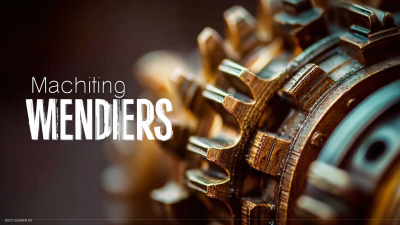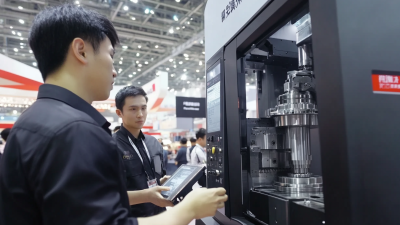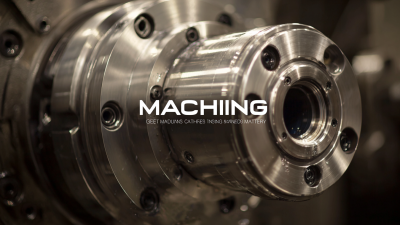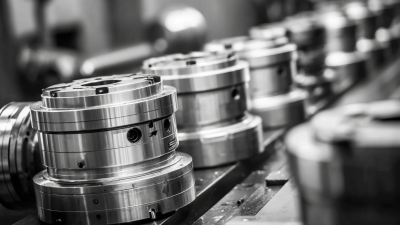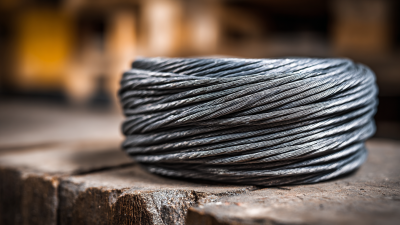In today's rapidly evolving manufacturing landscape, selecting the appropriate machining vendors is crucial for businesses aiming to enhance their operational efficiency and product quality. According to a recent report by MarketsandMarkets, the global machining market is projected to reach $144.16 billion by 2025, driven by the increasing reliance on precision engineering and advanced manufacturing technologies. As companies face complex supply chain challenges and rising competition, the importance of aligning with reliable machining vendors cannot be overstated.

A strategic partnership with the right machining vendor can not only reduce production costs but also offer access to specialized expertise and innovative solutions. This comprehensive guide aims to equip businesses with the knowledge necessary to evaluate and choose the ideal machining vendors tailored to their unique needs, ensuring sustainable growth and a competitive edge in the market.
When selecting a machining vendor, understanding your specific machining needs is crucial. Different types of machining processes—such as turning, milling, grinding, and electrical discharge machining (EDM)—serve varied purposes and applications. For instance, turning is ideal for cylindrical components, whereas milling is more suited for flat or complex geometries. Identifying the type of machining required for your project can significantly impact both the quality of the final product and the efficiency of production.
In addition to the type of machining, you must consider the specifications that are essential for your project. This includes factors such as material compatibility, tolerances, surface finishes, and production volume. Each material has unique properties that influence the choice of machining method; for instance, harder materials like titanium may require specialized tools or processes. Moreover, stringent tolerance requirements can dictate the complexity of machining techniques used. By clearly defining these needs, you can better communicate with potential vendors, ensuring they possess the necessary capabilities and expertise to meet your expectations.
 When selecting machining vendors, one of the key factors to consider is their quality assurance capabilities and certifications. Quality assurance (QA) is crucial, as it directly impacts the integrity of your production processes. Recent studies indicate that firms with a robust supplier appraisal system, focusing on financial stability and technical capacity, show improved performance outcomes. For instance, organizations that prioritize conformance to established systems and procedures tend to maintain higher operational efficiency and product quality.
When selecting machining vendors, one of the key factors to consider is their quality assurance capabilities and certifications. Quality assurance (QA) is crucial, as it directly impacts the integrity of your production processes. Recent studies indicate that firms with a robust supplier appraisal system, focusing on financial stability and technical capacity, show improved performance outcomes. For instance, organizations that prioritize conformance to established systems and procedures tend to maintain higher operational efficiency and product quality.
Tip: Ensure your vendors hold recognized quality certifications that align with your industry standards, such as ISO certifications. These signify a commitment to maintaining quality against rigorous benchmarks.
Furthermore, leveraging data science can enhance the evaluation of vendor capabilities. Research suggests that deploying digital strategies can moderate the relationship between quality certifications and sales performance, highlighting the significance of not only selecting vendors with proper certifications but also integrating quality management into your digital transformation efforts.
Tip: Regularly assess your vendor’s QA processes and stay informed about the latest governance, risk, and compliance certifications in your industry to ensure continuous alignment and improvement.
When selecting machining vendors for your business, understanding the various pricing models is crucial. Vendors typically offer different types of pricing structures, such as fixed pricing, hourly rates, or cost-plus pricing. Fixed pricing can simplify budgeting, providing a clear upfront cost for projects. In contrast, hourly rates may benefit projects with unpredictable scopes but can potentially lead to budget overruns if not monitored carefully. Cost-plus pricing includes the base cost of production plus a markup, which can be advantageous for both parties if managed transparently.
Beyond immediate pricing, it's essential to evaluate the total cost of ownership (TCO). TCO encompasses not just the price paid to the vendor but all associated costs over the lifespan of the product. This includes maintenance, quality control, and potential downtime costs if the vendor fails to meet deadlines. A vendor that offers a lower upfront cost might realize higher TCO if they compromise on quality or reliability. Therefore, meticulous cost analysis helps to uncover hidden expenses, ensuring that the chosen vendor aligns with long-term business objectives while contributing to overall efficiency and profitability.
| Vendor Type | Pricing Model | Average Cost per Hour | Estimated Lead Time | Total Cost of Ownership |
|---|---|---|---|---|
| Local Machining Shops | Hourly Rate | $75 | 1-2 Weeks | $1,500 |
| Contract Manufacturers | Flat Rate | $100 | 3-4 Weeks | $2,000 |
| Offshore Vendors | Per Project | $50 | 4-6 Weeks | $1,200 |
| High-End Specialty Shops | Premium Rate | $150 | 1-3 Weeks | $3,500 |
| Custom Fabricators | Variable Pricing | $80 | 2-3 Weeks | $1,800 |
When selecting machining vendors for your business, assessing their reliability is paramount, particularly in terms of delivery times and customer support. Reliable vendors consistently meet deadline commitments, allowing your production schedules to run smoothly. Consequently, it's essential to establish a clear understanding of their timelines before committing to any contracts. Asking for references or case studies can provide insights into their past performance and adherence to delivery schedules, helping you gauge their reliability.

Equally important is evaluating customer support. A vendor that is responsive and communicates effectively can make a significant difference when issues arise. Consider how they handle inquiries and whether they provide dedicated support channels. During the selection process, test their responsiveness by reaching out with questions or requests for quotes. This will not only highlight their commitment to customer service but also give you a sense of how they will handle any potential challenges during your collaboration. Your chosen vendor should be a partner that you can rely on, particularly in times of urgency.
In today's rapidly evolving manufacturing landscape, the integration of technology and innovation is essential for businesses looking to optimize their machining processes. CNC machines, with their precision and efficiency, have revolutionized the way we produce components. These computer-controlled devices increase productivity by reducing human error and allowing for complex designs to be executed with unparalleled accuracy. As industries continue to embrace automation, selecting a vendor who offers advanced CNC technology becomes crucial.
Moreover, the advancements in automation not only streamline operations but also enhance scalability. Automation technologies, such as robotic arms and intelligent software, can analyze production data in real-time, enabling manufacturers to make informed decisions that improve operational efficiency. When evaluating machining vendors, it is essential to consider their investment in the latest technologies and their ability to adapt to the changing market demands. Aligning with a vendor that prioritizes innovation ensures your business remains competitive and capable of leveraging the benefits of modern machining solutions.
